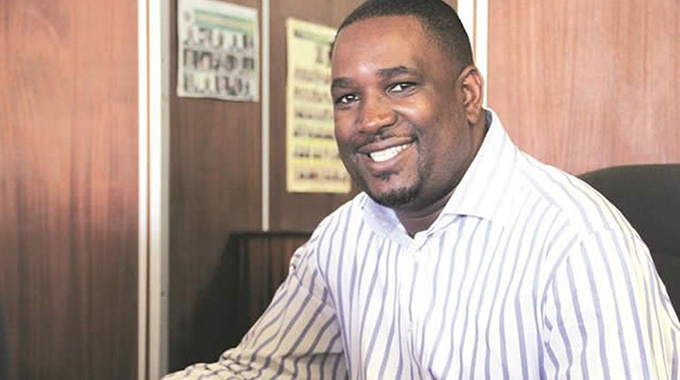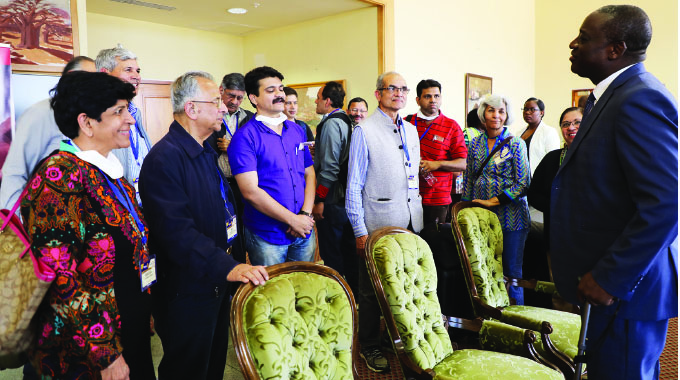CAF ban pregnant with lessons for Zim

AT the beginning of this month, we warned that if something wasn’t done urgently to fix football stadiums, Zimbabwe would face the embarrassment of seeing the Warriors being forced to play their home matches on foreign soil.
We issued the warning as we launched our Fix Our Grounds (FOG) campaign to highlight the sorry state of our football stadiums, hoping this would push authorities to take action and address the situation.
As a national newspaper, we felt we had a responsibility to do that because these stadiums belong to everyone who calls himself, or herself, a Zimbabwean, and we have a responsibility to pass them, in good shape, to the next generation of Zimbabweans.
We were inspired by the fact that Gwanzura Stadium was built by the late national hero, Eric Gwanzura, and if one man, with the help of his family and community could do that, why can’t we, as a nation, do the easier thing of either maintaining or improving it?
Gwanzura was, for years, good enough to host international matches like the CAF Champions League because it was well-maintained.
But, somewhere along the way, those who were tasked with its maintenance slept on duty.
Five years ago, the stadium couldn’t even be certified to host a domestic Premiership game because of concerns that raw sewage, which kept spilling from burst pipes and flowing onto the playing pitch, was now a danger to the health of players, their technical staff and match officials.
We have used Gwanzura as an example because we have seen the National Sports Stadium, the country’s biggest football ground, Rufaro and Barbourfields all suffer from the neglect which reduced the Highfield stadium into such a ghost facility within a very short time.
It’s sad that when we warned that things were coming to a head, if nothing was done to give a facelift to the National Sports Stadium, Rufaro and Barbourfields, and address the concerns which were raised by Confederation of African Football (CAF) inspectors last November, peace-meal renovations took place.
Harare City Council, who own Gwanzura and Rufaro, scrambled a team of workers, jolted by the negative publicity than a genuine desire to improve something that belongs to them, and sent them to start preliminary work on the Highfield ground.
They promised that, once they were done with Gwanzura, they would switch to Rufaro.
Bulawayo City Council were told they had to fix a number of concerns or Barbourfields, which was the only major football stadium given a provisional clearance to host international matches by CAF, would also be barred from staging such games.
The pitch condition needed to be improved, and the surface had to be green and marked clearly in white, team benches area needed general renovation and painting, for evening matches, the floodlights LUX capacity had to be according to the CAF Champions League match requirements and a minimum 1200 Lux should be provided all over the pitch, covering uniformly every area of the playing field.
CAF demanded the installation of signage around the medical facility, and throughout the stadium to notify supporters, the teams’ dressing rooms had to be of a high-quality standard, with appropriate seats and lockers and they should have five individual seated toilets, a massage table, a tactical board (white board/flip chart with pens) and good ventilation or air-conditioning.
There was need for the referees’ dressing rooms to be renovated to ensure they were of high quality, with appropriate seats and lockers and, in addition, it should have four seats, four lockers, Internet connectivity, good ventilation or air-conditioning, first aid kits and pumps and pressure gages for the match balls.
There was also need for a doping room which had to meet the following requirements: It had to be near the teams’ dressing room and it had to be inaccessible to any person that is not involved with the doping control process, it needed to contain a television, a refrigerator equipped with non-alcoholic drinks in sealed mineral water bottles, wastepaper bin for bottles, a ventilator and sufficient seating for at least eight persons.
These are just part of what needed to have been fixed between November last year and now.
And, as we feared, nothing was done, with Bulawayo Town Clerk Christopher Dube saying they were crippled by budgetary constraints.
“What delayed the process of improving certain things at Barbourfields Stadium was that there were processes that needed to be followed that include approval of the budget, which was done a couple of weeks ago,’’ he said.
“Also, some of the things have to be imported and foreign currency isn’t easily available. As it is, there’s an ongoing Government programme we are hoping to get help from for the development of Barbourfields Stadium.
“As Bulawayo, we are committed to host international games in the city because that promotes tourism and improves revenue inflows. We are always ready for international games and I think it was only fair to give us time to attend to any shortcomings.
“What is important is to work together with ZIFA and CAF and, as Bulawayo City Council ,we can make a written commitment stating the timeline when renovations will be completed and then be held accountable if we miss the deadline.’’
This sounds like a song we have been hearing over the past five years, promises and nothing else, and it’s said that even the National Sports Stadium, which should be a facility that defines our pride as a nation, has been left to rot because people simply do not want to do their work.
The cumulative effect of all that is what we now have to suffer, as a country, our pride being battered by the decision to force our national football teams to play home away from home, as if we are in a war situation, simply because this and that person slept on duty.
If ever we needed a big wake-up call, as a country, to do things differently, to make people work for what they are being paid for, then the CAF ban really provides that.











Comments